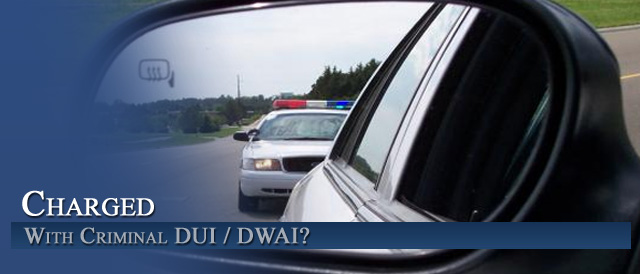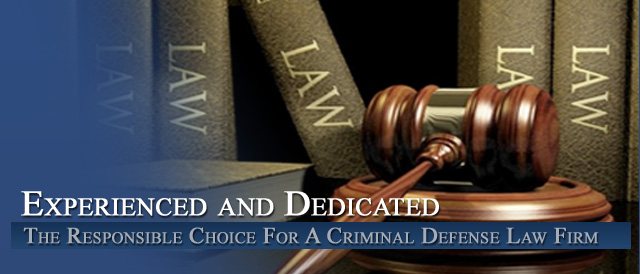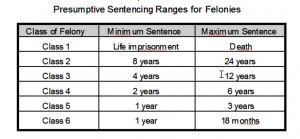




Understanding Colorado’s Felony DUI Law – Effective Date – August 5, 2015
By H. Michael Steinberg – Colorado DUI – DWAI – DUID And Felony Criminal Defense Lawyer
Understanding Colorado’s Felony DUI Law – Effective Date – August 5, 2015. One of the most significant changes to Colorado DUI Law is about to happen on August 5, 2015. With the enactment of the new law – Colorado joins all but three states who do not have a felony DUI Law.
The Governor of Colorado had this to say about the new “four strikes” law:
The other folks, even after classes, courses, and putting devices on their cars, they still find ways to drive drunk,” Hickenlooper said. “I think at a certain point we can’t let them drive. It’s irresponsible for society to leave those people on the road.
What is the nature of the change? For decades Colorado law made it a misdemeanor for an unlimited number of convictions for DUI – DWAI – DUID.
Colorado House Bill – 1043 – Colorado’s Felony DUI Bill has changed that. The new law makes it an automatic felony DUI for their FOURTH DUI – DWAI or DUID within seven years.
Colorado House Bill – 1043 – Colorado’s Felony DUI Bill would also require someone convicted of their second DUI to pay for and use an Interlock device for anywhere between two and five years. That means a driver would have to blow into a device that checks for alcohol on someone’s breath. Their vehicle would not start if their breath tested positive for alcohol.
Who Will Be Impacted By The 2015 Colorado Felony DUI – Law?
It is estimated that Colorado has more than 24,000 annual cases of DUI – DWAI – DUID driving.
The Colorado state legislature estimates that during the first full year of the law – 117 people will not only be convicted under the new law but will be sentenced to prison under the new law. It is also estimated that ar least 426 people will be imprisoned for repeat DUI offenses.
What Is The Penalty If You Are Convicted Under The Colorado DUI Felony Law § 42-4-1301?
First – it is important to note that a sentence to prison is NOT automatic. The law gives the trial judge discretion to impose felony sentencing penalties – but – as described below – those penalties are NOT mandatory. A conviction for a Felony DUI in Colorado for a fourth (or more) drunk driving offense is punishable as a CLASS FOUR FELONY punishable by up to six years in prison and a fine of as much as $500,000.
Click to ENLARGE:
Colorado’s Felony DUI Law – The “Priors” (Prior Convictions) Can Be From Any State Or Territory
The three “priors” that are necessary before you can be charged with a Colorado Felony DUI can be for:
- DUI
- DWAI
- Vehicular Assault (a Colorado felony), and
- Vehicular Homicide (a Colorado felony)
BUT they have to be classified as DUI crimes in Colorado AND the District Attorney MUST SPECIFY in the charging document where they occurred and how they meet the law’s requirements. (“The prosecution shall set forth such prior convictions in the indictment or information.” see below)
The definition of a “conviction” is found in a different law Section 42-4-1307:
(a) (b) “Conviction” means a verdict of guilty by a judge or jury or a plea of guilty or nolo contendere that is accepted by the court for an offense or adjudication for an offense that would constitute a criminal offense if committed by an adult.
“Conviction” also includes having received a deferred judgment and sentence or deferred adjudication; except that a person shall not be deemed to have been convicted if the person has successfully completed a deferred sentence or deferred adjudication.
What Follows Is The Relevant Section Of The Law – 42-4-1301 C.R.S.
(1) (a) A person who drives a motor vehicle or vehicle under the influence of alcohol or one or more drugs, or a combination of both alcohol and one or more drugs, commits driving under the influence. Driving under the influence is a misdemeanor, but it is a class 4 felony if the violation occurred after three or more prior convictions, arising out of separate and distinct criminal episodes, for DUI, DUI per se, or DWAI; vehicular homicide, as described in section 18-3-106 (1) (b), C.R.S.; vehicular assault, as described in section 18-3-205 (1) (b), C.R.S.; or any combination thereof.
(j) For the purposes of this section, a person is deemed to have a prior conviction for DUI, DUI per se, or DWAI; vehicular homicide, as described in section 18-3-106 (1) (b), C.R.S.; or vehicular assault, as described in section 18-3-205 (1) (b), C.R.S., if the person has been convicted under the laws of this state or under the laws of any other state, the United States, or any territory subject to the jurisdiction of the United States, of an act that, if committed within this state, would constitute any of these offenses. The prosecution shall set forth such prior convictions in the indictment or information.
Even After A Felony Conviction Enters – A Sentence To Prison Is Not Mandatory
Under Section 42-4-1301 C.R.S. – A Judge is required to make certain important findings before sentencing a person convicted under Colorado’s Felony DUI law. This “escape hatch” language may save a client from a sentence to a Colorado prison.
Before sentencing the newly convicted DUI Felon to prison – the Trial Judge:
…must determine that incarceration is the most suitable option given the facts and circumstances of the case, including the defendant’s willingness to participate in treatment.
AND
…must make a finding that alcohol or drug treatment and other reasonable sanctions are will not work and the accused is “unacceptable risk to public safety.”
What follows is the exact language of the law:
Section 42-4-1301 C.R.S. (II) (A) – Notwithstanding the provisions of subparagraph (I) of this paragraph (k), before the imposition of any sentence to the department of corrections for a felony DUI, DUI per se, or DWAI offense, at sentencing or at resentencing after a revocation of probation or a community corrections sentence, the court shall consider all the factors described in subsubparagraph (B) of this subparagraph (II).
(B) If the court sentences the defendant to the department of corrections for a felony DUI, DUI per se, or DWAI offense:
..it must determine that incarceration is the most suitable option given the facts and circumstances of the case, including the defendant’s willingness to participate in treatment.
Additionally, the court shall consider whether all other reasonable and appropriate sanctions and responses to the violation that are available to the court have been exhausted, do not appear likely to be successful if tried, or present an unacceptable risk to public safety.
Some Additional Provisions Of House Bill 15-1043 – DUI Sentencing Changes
When Will You Be Allowed To Drive? Conditional Drivers Licenses The Imposition Of The Interlock Device?
There are various times when the State of Colorado imposes the requirement that an interlock device be used to reinstate the privilege to drive. One of those is when the driver has been revoked for multiple convictions for any combination of a DUI, DUI per se, or DWAI. Before this law was enacted the driver with multiple convictions was required to have an interlock for at least one year following reinstatement and prior to being eligible to obtain any other driver’s license.
The new law increases the requirement to a minimum of 2 years and a maximum of 5 years.
Put another way – before the State of Colorado will grant a “conditional driver’s license” there is a requirement that an ignition interlock device be installed and used for at least two and as many as five years after their driver’s license is revoked.
For those convicted of Felony DUI there is the requirement that the ignition interlock while they are on parole following a prison sentence.
Changes To Third And Subsequent DUI’s (Not Charged As A Felony)
House Bill 15-1043 also amends another law which law sets the penalties for DUI’s in Colorado That law, is 42-4-1307 (42-4-1307 Effective 8- 5- 2015 Penalties for traffic offenses involving alcohol and drugs – legislative declaration – definitions – repeal).
HB 15-1043 permits – as a part of a sentence for a third DUI – DWAI – DUID conviction – where the first of the two “priors” occurs within 7 years – that the driver be placed in a half way house – community corrections residential treatment as a condition of probation.
What follows is the exact language of the law (the relevant new sections are italicized:
42-4-1307 (6) Third and Subsequent Offenses
(a) Except as provided in section 42-4-1301 (1) (a), (1) (b), and (2) (a), a person who is convicted of DUI, DUI per se, or DWAI who, at the time of sentencing, has two or more prior convictions of DUI, DUI per se, DWAI, vehicular homicide pursuant to section 18-3-106(1) (b), C.R.S., vehicular assault pursuant to section 18-3-205(1) (b), C.R.S., aggravated driving with a revoked license pursuant to section 42-2-206(1) (b) (I) (A) or (1) (b) (I) (B), as that crime existed before the effective date of House Bill 15-1043, as enacted in 2015, or driving while the person’s driver’s license was under restraint pursuant to section 42-2-138(1) (d) shall be punished by:
(I) Imprisonment in the county jail for at least sixty consecutive days but no more than one year. During the mandatory sixty-day period of imprisonment, the person shall not be eligible for earned time or good time pursuant to section 17-26-109, C.R.S., or for trusty prisoner status pursuant to section 17-26-115, C.R.S.; except that a person shall receive credit for any time that he or she served in custody for the violation prior to his or her conviction. During the mandatory period of imprisonment, the court shall not have any discretion to employ any sentencing alternatives described in section 18-1.3-106, C.R.S.; except that the person may participate in a program pursuant to section 18-1.3-106(1) (a) (II), (1) (a) (IV), or (1) (a) (V), C.R.S., only if the program is available through the county in which the person is imprisoned and only for the purpose of:
(A) Continuing a position of employment that the person held at the time of sentencing for said violation;
(B) Continuing attendance at an educational institution at which the person was enrolled at the time of sentencing for said violation; or
(C) Participating in a court-ordered level II alcohol and drug driving safety education or treatment program, as described in section 42-4-1301.3(3) (c) (IV);
(II) A fine of at least six hundred dollars but no more than one thousand five hundred dollars, and the court shall have discretion to suspend the fine;
(III) At least forty-eight hours but no more than one hundred twenty hours of useful public service, and the court shall not have discretion to suspend the mandatory minimum period of performance of the service; and
(IV) A period of probation of at least two years, which period shall begin immediately upon the commencement of any part of the sentence that is imposed upon the person pursuant to this section, and a suspended sentence of imprisonment in the county jail for one year, as described in subsection (7) of this section; except that the court shall not sentence the defendant to probation if the defendant is sentenced to the department of corrections, but shall still sentence the defendant to the provisions of paragraph (b) of subsection (7) of this section. The defendant shall complete all court-ordered programs pursuant to paragraph (b) of subsection (7) of this section before the completion of his or her period of parole.
(b) Notwithstanding the provisions of section 18-1.3-106(12), C.R.S., if, pursuant to paragraph (a) of this subsection (6), a court allows a person to participate in a program pursuant to section 18-1.3-106(1) (a) (II), (1) (a) (IV), or (1) (a) (V), C.R.S., the person shall not receive one day credit against his or her sentence for each day spent in such a program, as provided in said section 18-1.3-106(12), C.R.S.
(c) Notwithstanding any other provision of law, if the defendant satisfies the conditions described in subparagraphs (I), (II), and (III) of this paragraph (c), the court may include as a condition of probation a requirement that the defendant participate in alcohol treatment. If the defendant’s assessed treatment need is for residential treatment, the court may make residential alcohol treatment a condition of probation and may place the offender in a community corrections program that can provide the appropriate level of treatment. This paragraph (c) applies only if:
(I) At the time of sentencing, the person has two prior convictions of DUI, DUI per se, DWAI, vehicular homicide pursuant to section 18-3-106 (1) (b), C.R.S., or vehicular assault pursuant to section 18-3-205 (1) (b), C.R.S.;
and
(II) The first of the person’s two prior convictions was based on a violation that occurred not more than seven years before the violation for which the person is being sentenced.…
Summary – The Irony Of Colorado Felony DUI Law – Understanding Colorado’s Felony DUI Law – Effective Date – August 5, 2015
According to a number of reliable sources – HB 1043 will not reduce DUIs or alcohol related fatalities. The National Transportation Safety Board has determined that 71% of all alcohol-related fatalities are committed by a driver with NO prior convictions for DUI.
There is no correlation between states with a felony DUI law and lower alcohol-related traffic fatality rates Since the overwhelming majority of alcohol-related fatalities are NOT committed by someone with multiple DUI convictions, the harsh penalties of HB 1043 are imposed for political reasons and – like many criminal laws – do not address the more complex issues underlying drinking and driving.
Here is a reprint of the ENTIRE LAW – The New Sections Are Italicized.
§ 42-4-1301. [Effective 8/5/2015] Driving under the influence – driving while impaired -driving with excessive alcoholic content – definitions – penalties
(1) (a) A person who drives a motor vehicle or vehicle under the influence of alcohol or one or more drugs, or a combination of both alcohol and one or more drugs, commits driving under the influence. Driving under the influence is a misdemeanor, but it is a class 4 felony if the violation occurred after three or more prior convictions, arising out of separate and distinct criminal episodes, for DUI, DUI per se, or DWAI; vehicular homicide, as described in section 18-3-106 (1) (b), C.R.S.; vehicular assault, as described in section 18-3-205 (1) (b), C.R.S.; or any combination thereof.
(b) A person who drives a motor vehicle or vehicle while impaired by alcohol or by one or more drugs, or by a combination of alcohol and one or more drugs, commits driving while ability impaired. Driving while ability impaired is a misdemeanor, but it is a class 4 felony if the violation occurred after three or more prior convictions, arising out of separate and distinct criminal episodes, for DUI, DUI per se, or DWAI; vehicular homicide, as described in section 18-3-106 (1) (b), C.R.S.; vehicular assault, as described in section 18-3-205 (1) (b), C.R.S.; or any combination thereof.
(j) For the purposes of this section, a person is deemed to have a prior conviction for DUI, DUI per se, or DWAI; vehicular homicide, as described in section 18-3-106 (1) (b), C.R.S.; or vehicular assault, as described in section 18-3-205 (1) (b), C.R.S., if the person has been convicted under the laws of this state or under the laws of any other state, the United States, or any territory subject to the jurisdiction of the United States, of an act that, if committed within this state, would constitute any of these offenses. The prosecution shall set forth such prior convictions in the indictment or information.
(k) (I) If a defendant is convicted of a class 4 felony pursuant to this section, the court shall sentence the person in accordance with the provisions of section 18-1.3-401, C.R.S.
(II) (A) Notwithstanding the provisions of subparagraph (I) of this paragraph (k), before the imposition of any sentence to the department of corrections for a felony DUI, DUI per se, or
DWAI offense, at sentencing or at resentencing after a revocation of probation or a community corrections sentence, the court shall consider all the factors described in subsubparagraph (B) of this subparagraph (II).
(B) If the court sentences the defendant to the department of corrections for a felony DUI, DUI per se, or DWAI offense, it must determine that incarceration is the most suitable option given the facts and circumstances of the case, including the defendant’s willingness to participate in treatment. Additionally, the court shall consider whether all other reasonable and appropriate sanctions and responses to the violation that are available to the court have been exhausted, do not appear likely to be successful if tried, or present an unacceptable risk to public safety.
…
(d) As used in this section, one or more drugs means any drug, as defined in section 27-80-203(13), C.R.S., any controlled substance, as defined in section 18-18- 02(5), C.R.S., and any inhaled glue, aerosol, or other toxic vapor or vapors, as defined in section 18-18-412, C.R.S.
(e) The fact that any person charged with a violation of this subsection (1) is or has been entitled to use one or more drugs under the laws of this state, including, but not limited to, the medical use of marijuana pursuant to section 18-18-406.3, C.R.S., shall not constitute a defense against any charge of violating this subsection (1).
(f) “Driving under the influence” means driving a motor vehicle or vehicle when a person has consumed alcohol or one or more drugs, or a combination of alcohol and one or more drugs, that affects the person to a degree that the person is substantially incapable, either mentally or physically, or both mentally and physically, to exercise clear judgment, sufficient physical control, or due care in the safe operation of a vehicle.
(g) “Driving while ability impaired” means driving a motor vehicle or vehicle when a person has consumed alcohol or one or more drugs, or a combination of both alcohol and one or more drugs, that affects the person to the slightest degree so that the person is less able than the person ordinarily would have been, either mentally or physically, or both mentally and physically, to exercise clear judgment, sufficient physical control, or due care in the safe operation of a vehicle.
(h) Pursuant to section 16-2-106, C.R.S., in charging the offense of DUI, it shall be sufficient to describe the offense charged as “drove a vehicle under the influence of alcohol or drugs or both”.
(i) Pursuant to section 16-2-106, C.R.S., in charging the offense of DWAI, it shall be sufficient to describe the offense charged as “drove a vehicle while impaired by alcohol or drugs or both”.
(2) (a) A person who drives a motor vehicle or vehicle when the person’s BAC is 0.08 or more at the time of driving or within two hours after driving commits DUI per se. During a trial, if the state’s evidence raises the issue, or if a defendant presents some credible evidence, that the defendant consumed alcohol between the time that the defendant stopped driving and the time that testing occurred, such issue shall be an affirmative defense, and the prosecution must establish beyond a reasonable doubt that the minimum 0.08 blood or breath alcohol content required in this paragraph (a) was reached as a result of alcohol consumed by the defendant before the defendant stopped driving. DUI per se is a misdemeanor, but it is a class 4 felony if the violation occurred after three or more prior convictions, arising out of separate and distinct criminal episodes, for DUI, DUI per se, or DWAI; vehicular homicide, as described in section 18-3-106 (1) (b), C.R.S.; vehicular assault, as described in section 18-3-205 (1) (b), C.R.S.; or any combination thereof.
(a.5) [Repealed by 2015 amendment.]
(b) In any prosecution for the offense of DUI per se, the defendant shall be entitled to offer direct and circumstantial evidence to show that there is a disparity between what any tests show and other facts so that the trier of fact could infer that the tests were in some way defective or inaccurate. Such evidence may include testimony of nonexpert witnesses relating to the absence of any or all of the common symptoms or signs of intoxication for the purpose of impeachment of the accuracy of the analysis of the person’s blood or breath.
(c) Pursuant to section 16-2-106, C.R.S., in charging the offense of DUI per se, it shall be sufficient to describe the offense charged as “drove a vehicle with excessive alcohol content”.
(d) (I) It is a class A traffic infraction for any person under twenty-one years of age to drive a motor vehicle or vehicle when the person’s BAC, as shown by analysis of the person’s breath, is at least 0.02 but not more than 0.05 at the time of driving or within two hours after driving. The court, upon sentencing a defendant pursuant to this subparagraph (I), may order, in addition to any penalty imposed under a class A traffic infraction, that the defendant perform up to twenty-four hours of useful public service, subject to the conditions and restrictions of section 18-1.3-507, C.R.S., and may further order that the defendant submit to and complete an alcohol evaluation or assessment, an alcohol education program, or an alcohol treatment program at such defendant’s own expense.
(II) A second or subsequent violation of this paragraph (d) is a class 2 traffic misdemeanor.
(3) The offenses described in subsections (1) and (2) of this section are strict liability offenses.
(4) No court shall accept a plea of guilty to a non-alcohol-related or non-drug-related traffic offense or guilty to the offense of UDD from a person charged with DUI or DUI per se; except that the court may accept a plea of guilty to a non-alcohol-related or non-drug related traffic offense or to UDD upon a good faith representation by the prosecuting attorney that the attorney could not establish a prima facie case if the defendant were brought to trial on the original alcohol-related or drug-related offense.
(5) Notwithstanding the provisions of section 18-1-408, C.R.S., during a trial of any person accused of both DUI and DUI per se, the court shall not require the prosecution to elect between the two violations. The court or a jury may consider and convict the person of either DUI or DWAI, or DUI per se, or both DUI and DUI per se, or both DWAI and DUI per se. If the person is convicted of more than one violation, the sentences imposed shall run concurrently.
(6) (a) In any prosecution for DUI or DWAI, the defendant’s BAC or drug content at the time of the commission of the alleged offense or within a reasonable time thereafter gives rise to the following presumptions or inferences:
(I) If at such time the defendant’s BAC was 0.05 or less, it shall be presumed that the defendant was not under the influence of alcohol and that the defendant’s ability to operate a motor vehicle or vehicle was not impaired by the consumption of alcohol.
(II) If at such time the defendant’s BAC was in excess of 0.05 but less than 0.08, such fact gives rise to the permissible inference that the defendant’s ability to operate a motor vehicle or vehicle was impaired by the consumption of alcohol, and such fact may also be considered with other competent evidence in determining whether or not the defendant was under the influence of alcohol.
(III) If at such time the defendant’s BAC was 0.08 or more, such fact gives rise to the permissible inference that the defendant was under the influence of alcohol.
(IV) If at such time the driver’s blood contained five nanograms or more of delta 9-tetrahydrocannabinol per milliliter in whole blood, as shown by analysis of the defendant’s blood, such fact gives rise to a permissible inference that the defendant was under the influence of one or more drugs.
(b) The limitations of this subsection (6) shall not be construed as limiting the introduction, reception, or consideration of any other competent evidence bearing upon the question of whether or not the defendant was under the influence of alcohol or whether or not the defendant’s ability to operate a motor vehicle or vehicle was impaired by the consumption of alcohol.
(c) In all actions, suits, and judicial proceedings in any court of this state concerning alcohol-related or drug-related traffic offenses, the court shall take judicial notice of methods of testing a person’s alcohol or drug level and of the design and operation of devices, as certified by the department of public health and environment, for testing a person’s blood, breath, saliva, or urine to determine such person’s alcohol or drug level. The department of public health and environment may, by rule, determine that, because of the reliability of the results from certain devices, the collection or preservation of a second sample of a person’s blood, saliva, or urine or the collection and preservation of a delayed breath alcohol specimen is not required. This paragraph (c) shall not prevent the necessity of establishing during a trial that the testing devices used were working properly and that such testing devices were properly operated. Nothing in this paragraph (c) shall preclude a defendant from offering evidence concerning the accuracy of testing devices.
(d) If a person refuses to take or to complete, or to cooperate with the completing of, any test or tests as provided in section 42-4-1301.1 and such person subsequently stands trial for DUI or DWAI, the refusal to take or to complete, or to cooperate with the completing of, any test or tests shall be admissible into evidence at the trial, and a person may not claim the privilege against self-incrimination with regard to admission of refusal to take or to complete, or to cooperate with the completing of, any test or tests.
(e) Involuntary blood test – admissibility. Evidence acquired through an involuntary blood test pursuant to section 42-4-1301.1(3) shall be admissible in any prosecution for DUI, DUI per se, DWAI, or UDD, and in any prosecution for criminally negligent homicide pursuant to section 18-3-105, C.R.S., vehicular homicide pursuant to section 18-3-106(1) (b), C.R.S., assault in the third degree pursuant to section 18-3-204, C.R.S., or vehicular assault pursuant to section 18-3-205(1) (b), C.R.S.
(f) Chemical test – admissibility. Strict compliance with the rules and regulations prescribed by the department of public health and environment shall not be a prerequisite to the admissibility of test results at trial unless the court finds that the extent of noncompliance with a board of health rule has so impaired the validity and reliability of the testing method and the test results as to render the evidence inadmissible. In all other circumstances, failure to strictly comply with such rules and regulations shall only be considered in the weight to be given to the test results and not to the admissibility of such test results.
(g) It shall not be a prerequisite to the admissibility of test results at trial that the prosecution present testimony concerning the composition of any kit used to obtain blood, urine, saliva, or breath specimens. A sufficient evidentiary foundation concerning the compliance of such kits with the rules and regulations of the department of public health and environment shall be established by the introduction of a copy of the manufacturer’s or supplier’s certificate of compliance with such rules and regulations if such certificate specifies the contents, sterility, chemical makeup, and amounts of chemicals contained in such kit.
(h) In any trial for a violation of this section, the testimony of a law enforcement officer that he or she witnessed the taking of a blood specimen by a person who the law enforcement officer reasonably believed was authorized to withdraw blood specimens shall be sufficient evidence that such person was so authorized, and testimony from the person who obtained the blood specimens concerning such person’s authorization to obtain blood specimens shall not be a prerequisite to the admissibility of test results concerning the blood specimens obtained.
(i) (I) Following the lawful contact with a person who has been driving a motor vehicle or vehicle and when a law enforcement officer reasonably suspects that a person was driving a motor vehicle or vehicle while under the influence of or while impaired by alcohol, the law enforcement officer may conduct a preliminary screening test using a device approved by the executive director of the department of public health and environment after first advising the driver that the driver may either refuse or agree to provide a sample of the driver’s breath for such preliminary test; except that, if the driver is under twenty-one years of age, the law enforcement officer may, after providing such advisement to the person, conduct such preliminary screening test if the officer reasonably suspects that the person has consumed any alcohol.
(II) The results of this preliminary screening test may be used by a law enforcement officer in determining whether probable cause exists to believe such person was driving a motor vehicle or vehicle in violation of this section and whether to administer a test pursuant to section 42-4-1301.1(2).
(III) Neither the results of such preliminary screening test nor the fact that the person refused such test shall be used in any court action except in a hearing outside of the presence of a jury, when such hearing is held to determine if a law enforcement officer had probable cause to believe that the driver committed a violation of this section. The results of such preliminary screening test shall be made available to the driver or the driver’s attorney on request.
(j) In any trial for a violation of this section, if, at the time of the alleged offense, the person possessed a valid medical marijuana registry identification card, as defined in section 25-1.5-106(2) (e), C.R.S., issued to himself or herself, the prosecution shall not use such fact as part of the prosecution’s case in chief.
(k) In any traffic stop, the driver’s possession of a valid medical marijuana registry identification card, as defined in section 25-1.5-106(2) (e), C.R.S., issued to himself or herself shall not, in the absence of other contributing factors, constitute probable cause for a peace officer to require the driver to submit to an analysis of his or her blood.
….
(8) A second or subsequent violation of this section committed by a person under eighteen years of age may be filed in juvenile court.
Understanding Colorado’s Felony DUI Law – Effective Date – August 5, 2015
*(date of this article June 20, 2015)
If you found any information I have provided on this web page article helpful please click my Plus+1 or the Share button below so that others may also find it.
Never stop fighting – never stop believing in yourself and your right to due process of law.
ABOUT THE AUTHOR: H. Michael Steinberg – Email The Author at [email protected] – A Denver Colorado Criminal Defense Lawyer – or call his office at 303-627-7777 during business hours – or call his cell if you cannot wait and need his immediate assistance – 720-220-2277. Attorney H. Michael Steinberg is passionate about criminal defense. His extensive knowledge and experience of Colorado Criminal Law gives him the edge you need to properly handle your case.
 You must make a responsible choice for a Colorado Criminal Defense Lawyer – we encourage you to look at our firm. Over the last 40 plus years – H. Michael has mastered nearly every area of criminal law, procedure and trial and courtroom practice and he is passionate about getting you the best result in your case. He has written and continues to write extensively on Colorado criminal law and he hopes this article – – helps you in some small way. H. Michael hopes you found this page helpful – Understanding Colorado’s Felony DUI Law – Effective Date – August 5, 2015.
You must make a responsible choice for a Colorado Criminal Defense Lawyer – we encourage you to look at our firm. Over the last 40 plus years – H. Michael has mastered nearly every area of criminal law, procedure and trial and courtroom practice and he is passionate about getting you the best result in your case. He has written and continues to write extensively on Colorado criminal law and he hopes this article – – helps you in some small way. H. Michael hopes you found this page helpful – Understanding Colorado’s Felony DUI Law – Effective Date – August 5, 2015.

Other Articles of Interest:
- To Understand Colorado DUI – DWAI – DUID Probation Sentencing – First Read The Law
- Colorado Criminal Law – Understanding Hit And Run Cases – 42-6-1601, 14-6-1603
- Colorado’s Habitual Traffic Offender Law – CRS 42-2-206 – Driving After Revocation Prohibited – DAJP
- Application By Out Of Stated Suspended – Revoked – Restrained Drivers For A Denver Colorado Drivers License
- A Guide To The DMV Side Of Colorado DUI Cases Part I Of IV













